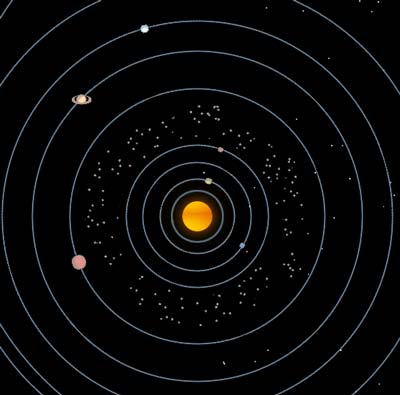Astronomical Tales
What do the bubonic plague, a nervous breakdown, and failing as a farmer have to do with the greatest scientific publication of all time?
The greatest scientific publication of all time is the Principia, which describes in practical mathematical terms the modern view of the universe and which subsequently contributed to every technological advance from the Industrial Revolution to the era of space travel. The author of the Principia is Isaac Newton — recognized by Western Civilization as single-handedly contributing more to the development of science than any other individual in history. Newton's biographers describe him as surpassing all the gains of the great scientific minds of antiquity, "producing a scheme of the universe which was more consistent, elegant, and intuitive than any proposed before."
Why did a petty argument between two great mathematicians kept the English from understanding and utilizing calculus for decades?
the answerNewton was born in a poor farming family and because he failed miserably at the occupation of farmer, his mother sent him to study at Cambridge after which he would become a preacher. Though he was not particularly good at grammar school, Newton was exposed to mathematics and science while at Cambridge.
The bubonic plague was spreading across England at the time and suddenly, for two full years, Cambridge announced its closure due to the plague situation. During this time, Newton left his formal studies and took refuge in a remote countryside villa, where proceeded to make most of the significant discoveries of his lifetime.
An introverted man who never told a joke and never laughed, Newton suffered a massive nervous breakdown in 1675, from which took him over 4 years to recover. Despite this, Newton published the Principia in 1687. The Principia included the famous Laws of Motion, without which modern space travel would be impossible.
 See an animation of the movement of planets in our solar system.
See an animation of the movement of planets in our solar system. See amazing views from space
See amazing views from space